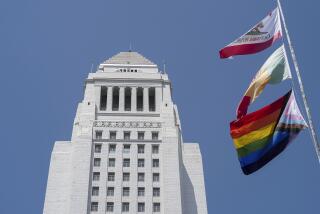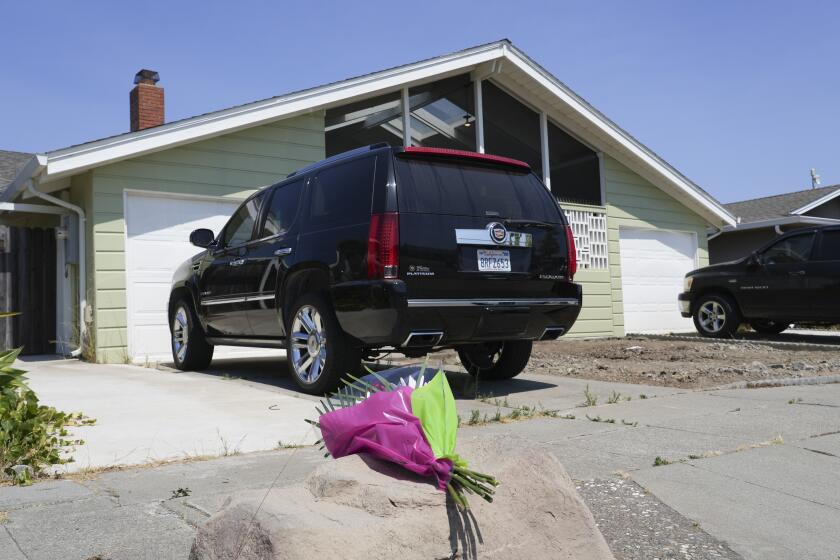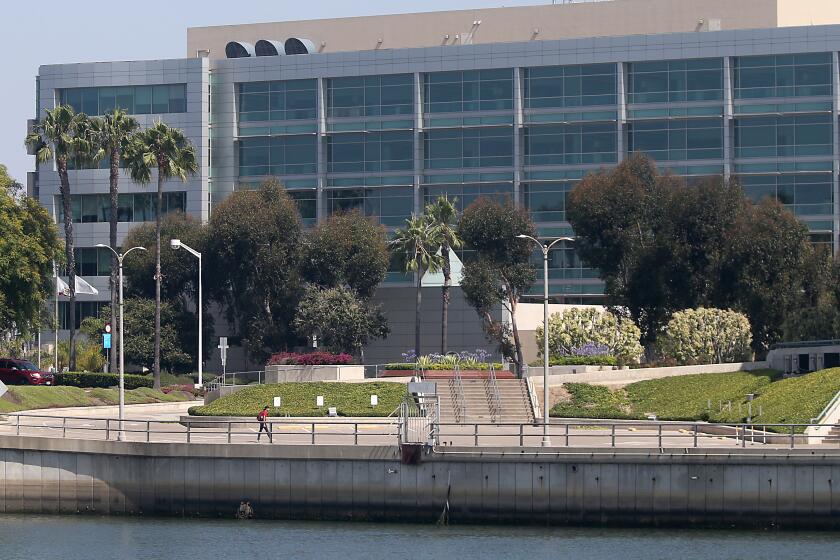Federal prosecutors seek dismissal of perjury and fraud charges against Tustin man
Federal prosecutors in Los Angeles have asked a judge to dismiss perjury and naturalization fraud charges against a Tustin man described in a court hearing last year as a terrorist sympathizer who regarded Osama bin Laden as “an angel” and allegedly planned to blow up buildings.
Though Ahmadullah Sais Niazi was not charged as a terrorist, prosecutors argued unsuccessfully to have him held without bond at a court hearing last year. An FBI agent testified that Niazi, who was born in Afghanistan, initiated jihadist rhetoric with an informant, discussed obtaining weapons, blowing up abandoned buildings and sending money overseas to the Afghan moujahedeen.
“Frankly, there is no amount of bail or equity in a home that can protect the citizens of this community,” Assistant U.S. Atty. Deirdre Eliot argued at the hearing in February 2009. Niazi was granted bail but placed under home detention. Federal officials said at the time that their investigation into Niazi was ongoing.
On Wednesday, lawyers for U.S. Atty. Andre Birotte Jr. filed court papers asking that the case against Niazi be dismissed due to “evidentiary issues, including the unavailability of an overseas witness.”
Patrick R. Fitzgerald, chief of the office’s national security section, declined comment on the government’s request, which must be approved by U.S. District Judge Cormac J. Carney in Santa Ana. Prosecutors asked Carney to dismiss the case without prejudice, which would allow them to re-file charges should circumstances change.
Chase Scolnick, one of Niazi’s deputy federal public defenders, called the government’s request for a dismissal, “an outstanding result for Mr. Niazi and his family.”
The case against Niazi stems from a controversial FBI probe in which agents recruited an ex-convict named Craig Monteilh to assume the identity of a Muslim convert and go undercover on the bureau’s behalf in Orange County mosques in 2006 and 2007.
Monteilh, who met Niazi at the Islamic Center of Irvine, is the informant Niazi was speaking to when he allegedly made the statements about jihad and other matters. Some of the statements were recorded, according to authorities. But the recordings were not played at Niazi’s bail hearing.
Niazi was arrested in February 2009 based on a five-count grand jury indictment charging him with two counts of perjury and one count each of naturalization fraud, misuse of a passport obtained by fraud and making a false statement to a federal agency. Niazi was accused of, among other things, failing to disclose that his brother-in-law is a close associate of Osama bin Laden. Those alleged offenses all occurred before Niazi met Monteilh.
After Niazi’s arrest, Monteilh described his role as an informant to The Times and later other media outlets. He said he was given the code name “Oracle” and assumed the identity of Farouk Al-Aziz, a Syrian-French-American in search of his Islamic roots. Monteilh said he was instructed to gather intelligence on mosque members who may be plotting terrorist acts or supporting terrorist organizations. The disclosure upset members of the Muslim American community and some civil libertarians who said the practice amounted to spying on people in places of worship.
In January, Monteilh sued the FBI and some of his individual handlers for allegedly violating his civil rights and endangering his life while he worked undercover for the bureau from 2004 through 2008. He accused bureau officials of cutting him loose after a supervisor allegedly bungled an operation that would have led to the discovery of “bomb making materials” in a Tustin mosque. Afterward, Monteilh’s lawsuit alleges, his FBI handlers reneged on a promise to implement an “exit strategy” that was to include back pay and severance pay and help with beginning a life with a new identity. Monteilh’s initial complaint has since been thrown out on procedural grounds, but he has filed an amended complaint which is pending in federal court in Orange County.
Monteilh met with Niazi’s attorneys — Scolnick and deputy federal public defender Guy Iversen — for hours on two occasions earlier this year. A Times reporter attended one of those meetings as an observer. At the meeting, Monteilh provided them with a detailed account of his cooperation with the FBI in the case against Niazi, including the names of the agents he reported to, his specific instructions, and the amounts of money he was paid. He also told the lawyers that FBI agents had attempted to blackmail Niazi into cooperating by threatening to leak embarrassing information about his personal life to the Islamic community.
More to Read
Start your day right
Sign up for Essential California for news, features and recommendations from the L.A. Times and beyond in your inbox six days a week.
You may occasionally receive promotional content from the Los Angeles Times.







